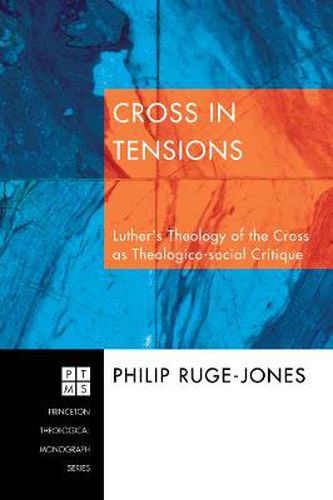Readings Newsletter
Become a Readings Member to make your shopping experience even easier.
Sign in or sign up for free!
You’re not far away from qualifying for FREE standard shipping within Australia
You’ve qualified for FREE standard shipping within Australia
The cart is loading…






This title is printed to order. This book may have been self-published. If so, we cannot guarantee the quality of the content. In the main most books will have gone through the editing process however some may not. We therefore suggest that you be aware of this before ordering this book. If in doubt check either the author or publisher’s details as we are unable to accept any returns unless they are faulty. Please contact us if you have any questions.
Luther’s theology of the cross is a direct critique of oppressive power relationships in his day. Luther’s early thought challenges specific economic, political, social, ideological, and religious power dynamics; the cross confronts those who enjoy power, prestige, pomp, and profits at the expense of the poor. Ruge-Jones maps the power relationships that Luther’s theology addressed and then turns to specific works that challenge established structures of his world. Luther’s Latin texts undermine the ideological assumptions and presumptions that bolstered an opulent church and empire. Luther uses the cross of Christ to challenge what he called volatilem cogitatum, knowledge that is prone to violence. His German writings (directed to a broader, more popular audience) focus this critique of human pretensions into an attack on systems of wealth, status, and power that refuse to look with compassion upon poor Mary, or upon the many domestic servants of Germany. God has respected the ones whom the world disrespects and has thus entered the world to turn it upside down. Also in the German writings, the Lord’s Supper calls the powerful to enter into solidarity with the poor–suffering people to whom Christ has given himself. Finally, in his popular pamphlets, visual images show with graphic specificity that throughout his life Christ sought out solidarity with the least. These images contrast brutally with images of a church that has sold its soul to wealth, political influence, military power, and status.
$9.00 standard shipping within Australia
FREE standard shipping within Australia for orders over $100.00
Express & International shipping calculated at checkout
This title is printed to order. This book may have been self-published. If so, we cannot guarantee the quality of the content. In the main most books will have gone through the editing process however some may not. We therefore suggest that you be aware of this before ordering this book. If in doubt check either the author or publisher’s details as we are unable to accept any returns unless they are faulty. Please contact us if you have any questions.
Luther’s theology of the cross is a direct critique of oppressive power relationships in his day. Luther’s early thought challenges specific economic, political, social, ideological, and religious power dynamics; the cross confronts those who enjoy power, prestige, pomp, and profits at the expense of the poor. Ruge-Jones maps the power relationships that Luther’s theology addressed and then turns to specific works that challenge established structures of his world. Luther’s Latin texts undermine the ideological assumptions and presumptions that bolstered an opulent church and empire. Luther uses the cross of Christ to challenge what he called volatilem cogitatum, knowledge that is prone to violence. His German writings (directed to a broader, more popular audience) focus this critique of human pretensions into an attack on systems of wealth, status, and power that refuse to look with compassion upon poor Mary, or upon the many domestic servants of Germany. God has respected the ones whom the world disrespects and has thus entered the world to turn it upside down. Also in the German writings, the Lord’s Supper calls the powerful to enter into solidarity with the poor–suffering people to whom Christ has given himself. Finally, in his popular pamphlets, visual images show with graphic specificity that throughout his life Christ sought out solidarity with the least. These images contrast brutally with images of a church that has sold its soul to wealth, political influence, military power, and status.